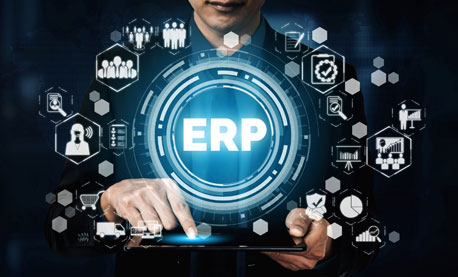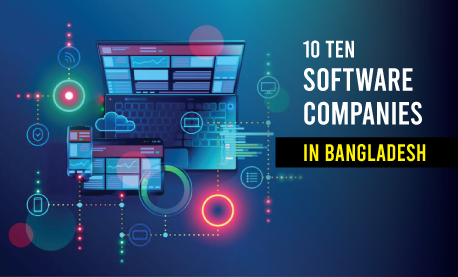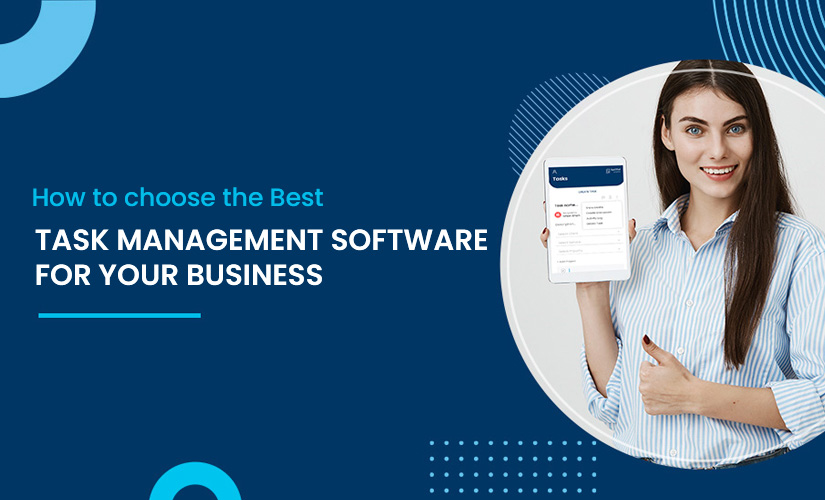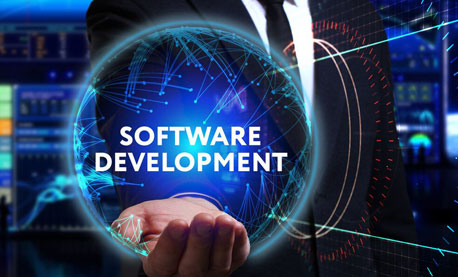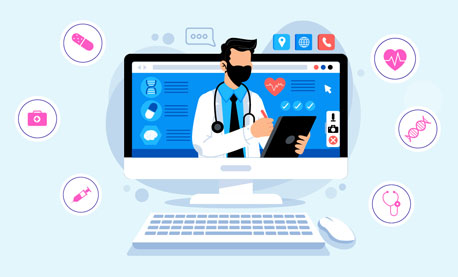ERP Software: Streamline Your Business
ERP software refers to a comprehensive suite of integrated applications designed to manage and automate core business functions across various departments within an organization. It serves as a centralized system that enables seamless communication and data sharing between different departments, such as finance, human resources, inventory management, manufacturing, sales, and customer relationship management (CRM).
With ERP software businesses can eliminate the need for disparate systems and manual processes, leading to improved efficiency, data accuracy, and decision-making capabilities. By providing real-time insights and actionable information, ERP software empowers organizations to optimize their operations, reduce costs, enhance productivity, and gain a competitive edge in the market.

The Benefits of ERP Software
Implementing ERP software offers numerous benefits that can revolutionize the way businesses operate. Let’s explore some of the key advantages:
- Streamlined Business Processes
ERP software streamlines and automates various business processes, eliminating redundant tasks and improving overall operational efficiency. By integrating disparate systems, departments can collaborate seamlessly, enhancing productivity and reducing the chances of errors or miscommunication.
- Enhanced Data Visibility and Accuracy
ERP software provides a centralized database that ensures consistent, accurate, and real-time data across the organization. With reliable information at their fingertips, decision-makers can make informed choices, identify trends, and forecast future requirements with confidence.
- Improved Decision-Making
By consolidating data from different departments, ERP software enables organizations to gain a holistic view of their operations. This comprehensive insight facilitates data-driven decision-making, empowering businesses to identify bottlenecks, optimize processes, and seize opportunities for growth.
- Cost Savings
ERP software helps organizations reduce costs by streamlining operations, minimizing manual tasks, and eliminating duplicate data entry. Additionally, the improved visibility and control over inventory, production, and finances enable businesses to make strategic cost-saving decisions.
- Increased Customer Satisfaction
With ERP software, organizations can enhance customer satisfaction by improving order management, providing accurate and timely information, and delivering exceptional service. Access to customer data enables businesses to personalize experiences, build stronger relationships, and foster long-term loyalty.
- Scalability and Flexibility
ERP software is designed to accommodate the evolving needs of businesses. Whether you are a small start-up or a large enterprise, ERP systems offer scalability and flexibility, allowing you to add or modify functionalities as your organization grows or industry requirements change.
Key Features of ERP Software
ERP software offers a wide range of key features that empower organizations to streamline their business processes and drive efficiency. Let’s explore some of the essential features that make ERP software a powerful tool for modern businesses:
- Centralized Database: ERP software provides a centralized database that serves as a single source of truth for all departments. This feature ensures data consistency and eliminates the need for multiple data entry points, reducing errors and improving data accuracy.
- Integration Capabilities: ERP systems integrate various business functions, allowing seamless data flow and communication between different departments. Integration ensures that information is shared in real-time, facilitating collaboration and enhancing productivity.
- Financial Management: ERP software includes robust financial management modules that enable organizations to manage their finances effectively. This feature encompasses functionalities such as general ledger, accounts payable and receivable, budgeting, financial reporting, and cash management.

- Supply Chain Management: ERP systems offer supply chain management capabilities, enabling businesses to optimize their procurement, inventory management, and logistics processes. This feature ensures efficient supply chain operations, minimizes stockouts, and improves customer satisfaction.
- Human Resources Management: ERP software includes modules for managing human resources functions, such as employee data management, payroll processing, time and attendance tracking, and performance management. These features help streamline HR processes and enhance workforce productivity.
- Manufacturing and Production: ERP systems often include manufacturing and production modules that assist organizations in planning, scheduling, and monitoring their manufacturing operations. This feature helps optimize production processes, reduce lead times, and improve product quality.
- Sales and Customer Relationship Management: ERP software incorporates modules for managing sales processes and customer relationships. These features encompass functionalities like lead management, order processing, sales forecasting, and customer service, enabling businesses to enhance customer satisfaction and drive sales growth.
- Business Intelligence and Reporting: ERP systems offer robust reporting and analytics capabilities, allowing organizations to gain valuable insights from their data. This feature enables businesses to track key performance indicators, generate customized reports, and make data-driven decisions.
- Mobile Accessibility: Many modern ERP solutions provide mobile accessibility, allowing users to access essential functionalities and information on the go. Mobile compatibility enhances flexibility and productivity, enabling employees to stay connected and make informed decisions remotely.
- Security and Data Protection: ERP software incorporates robust security measures to protect sensitive data. This includes features like user access controls, data encryption, audit trails, and backup and recovery options, ensuring the confidentiality and integrity of critical business information.
These are just a few of the key features offered by ERP software. The specific features and functionalities may vary depending on the vendor and the industry-specific requirements of the organization. By leveraging these powerful features, businesses can optimize their operations, drive growth, and stay competitive in today’s dynamic business environment.
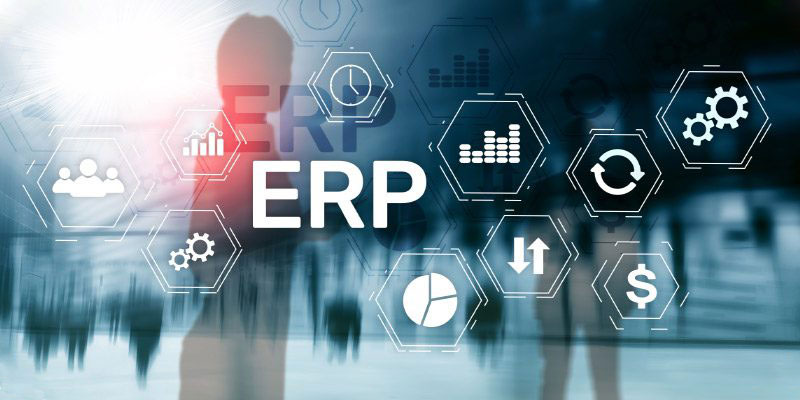
Implementing ERP Software
Implementing ERP software involves careful planning, execution, and user adoption. Here are the essential steps to consider:
- Define Objectives and Requirements
Clearly define your organization’s objectives, pain points, and desired outcomes from implementing ERP software. Identify the key features and functionalities required to address your specific needs and align them with your business strategy.
- Select an ERP System
Research and evaluate different ERP vendors based on your requirements, budget, and industry-specific needs. Consider factors such as system scalability, ease of use, integration capabilities, and ongoing support before making a decision.

- Develop an Implementation Plan
Create a detailed implementation plan that outlines the project timeline, resource allocation, and milestones. Assign dedicated project managers and cross-functional teams to ensure a smooth implementation process.
- Data Migration and Integration
Migrate and integrate existing data from disparate systems into the ERP software. Ensure data accuracy and integrity during the migration process to avoid any disruptions to your business operations.
- User Training and Adoption
Provide comprehensive training to end-users to ensure smooth adoption and maximize the benefits of the ERP system. Offer ongoing support and encourage feedback to address any challenges or concerns.
- Continuous Improvement and Optimization
Regularly review and optimize your ERP system to align with your evolving business needs. Leverage analytics and reporting capabilities to identify areas for improvement and make data-driven decisions.
FAQ’s about ERP Software
What industries can benefit from ERP software?
ERP software can benefit a wide range of industries, including manufacturing, retail, distribution, healthcare, construction, hospitality, and professional services. Its flexible nature allows customization to meet industry-specific requirements.
Is ERP software suitable for small businesses?
Yes, ERP software is suitable for small businesses as it offers scalability and can adapt to their evolving needs. Cloud-based ERP solutions are particularly cost-effective and ideal for small businesses with limited IT resources.
How long does it take to implement ERP software?
The implementation timeline for ERP software varies depending on factors such as the size of the organization, complexity of business processes, and customization requirements. On average, it can take anywhere from a few months to over a year.
Can ERP software integrate with existing systems?
Yes, ERP software can integrate with existing systems to ensure a seamless flow of data and information. Most ERP vendors provide integration capabilities or third-party tools to facilitate smooth integration.
What are the security measures in ERP software?
ERP software typically incorporates robust security measures, including user access controls, data encryption, regular backups, and compliance with industry standards such as GDPR or HIPAA. It is essential to choose a reputable ERP vendor with a strong focus on security.
How much does ERP software cost?
The cost of ERP software varies based on factors such as the size of the organization, chosen functionalities, customization requirements, and deployment model (cloud-based or on-premises). It is best to request quotes from different vendors and evaluate the total cost of ownership over the system’s lifespan.
Conclusion
ERP software has revolutionized the way businesses operate by providing a holistic and integrated approach to managing core business processes. Its ability to streamline operations, enhance data visibility, and drive informed decision-making offers a significant competitive advantage. By implementing ERP software, organizations can optimize efficiency, reduce costs, and unlock their true growth potential. Embrace the power of ERP software and witness the transformation of your business into a well-oiled, efficient machine. GCTL INFOSYS Provide Custom ERP software for any types of Business purposes.



